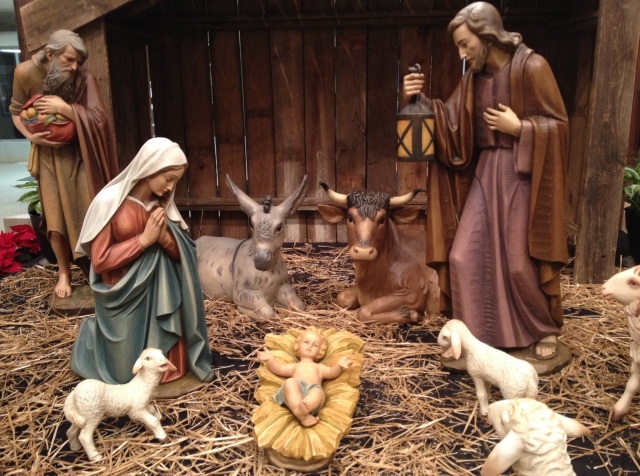The short answer to this question, of course, is “We celebrate Jesus’ birthday.”
But if we stop there, and regard the holiday as just another historical anniversary, we would overlook the life-changing truth: God became man, and was born of the Virgin, to fulfill his saving plan for you.
Jesus knows us, intimately and personally, because He is truly God, the Son of the Father. Existing from all eternity, He thought of us and loved us, eons before He created us.
That’s why the Son descended from heaven and became a baby in the womb of the Blessed Virgin Mary. Jesus was undertaking a divine mission to redeem us from our sins and make it possible for us to enjoy life with God forever.
Therein lies the radical newness of Christmas, its fundamental difference from the usual events of human history. Instead of receding ever further away from us over time, Christmas marks a new stage of the relationship between God and humankind – a relationship that is ongoing, touching each one of us, and drawing us toward union with God.
Benedict XVI has spoken movingly of the meaning of Christmas:
At Christmas, therefore, we do not limit ourselves to commemorating the birth of a great figure: we do not simply and abstractly celebrate the birth of the man or in general the mystery of life…
A great light really was lit: the Creator of the universe became flesh, uniting Himself indissolubly with human nature…made Himself tangible to our senses and our minds: we may now touch Him and contemplate Him.
Thus the Word of God “is a ‘Word’ addressed to us…a Person who is concerned with every individual person: He is the Son of the living God Who became man…”
We rejoice that God is not a “remote being, Whom it would never be possible to reach, but a God Who made Himself our neighbor and Who is very close to us, Who has time for each one of us and Who came to stay with us.”
Quotes from General Audience of December 17, 2008

You must be logged in to post a comment.